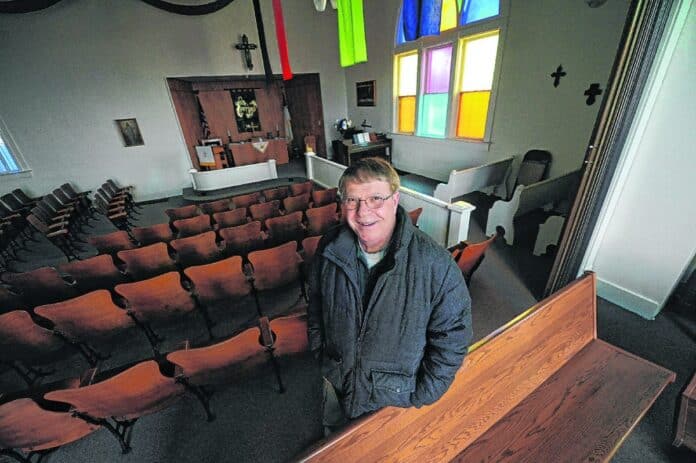Diane will never forget the night of Dec. 30, 1987 — not if she lives to 100.
She catching the last late bus after her shift at a nursing home near downtown Detroit. She looked forward to New Year’s Eve and a couple of days off.
She didn’t see him until he was on top of her. He forced her toward the alley, and she knew immediately it wasn’t her purse he was after.
He tore at her clothing and forced himself upon her. He told her he would kill her if she made a sound.
It was over in only a few minutes, but it seemed an eternity. She watched as he ran off.
She ran back out onto the sidewalk and yelled for help. Some passersby took her to the hospital and called the police.
The nightmare was going to last for some time. Never was her life going to return to normal. Never would anyone ever understand what she had gone through.
She was only one of many. The man had been doing this in the area for some time. The police had some leads, though, and wanted her to look at a line-up with some of the other victims.
As hard as it was to believe, they had the person. She was able to point him out. She would never forget his face or his voice.
Unfortunately, there was still a trial and all that went with it. A victim’s past and present are scrutinized by the defense. How was it she came to be there that night? Could she have enticed him?
She persevered, though, and the verdict came back: guilty.
Then the strangest thing happened at the sentencing. When asked if she wanted to speak, she stood and told the judge that she will never forget that fateful night — that her innocence and her trust were lost. Still, she forgave him.
People wondered if they heard correctly. She forgave him? How could this young woman possibly forgive the man who had taken so much from her?
She told them she had to; she would never forget, but unless she forgave she could never start the healing process.
Each of us have dates ingrained into our memory. We remember where we were and what we were doing when something happened. Some are personal: marriage, birth of children, a loved one’s passing.
Some affect a community, such as the Palm Sunday tornadoes, or when a hurricane or earthquake hit. Some affect a country: Dec. 7, 1941; Nov. 22, 1963; Sept. 11, 2001.
The start of a war. The assassination of President Kennedy. The strike of terrorists. These are dates when we may not only question Jesus’ command to forgive but also might even wonder where God was on those dates.
It is one thing when a harsh word or a missed appointment is to be forgiven, but surely God doesn’t want us to forgive murderers, rapists or terrorists who take away our feeling of security. We don’t want to believe that we are to forgive people like that.
And yet, if we look to the life of Christ, we see this is exactly what is expected of us.
Forgiving doesn’t mean there isn’t responsibility. Forgiving means we can start the healing process, that we can no longer be a slave to bitterness and hatred.
Jesus forgave on the very day he gave himself up for you, and for me, and for all the generations that have come before and will follow after — when he hung on the cross and he said, “Forgive them, Father, for they do not know what they are doing.”
The Rev. David Wise is pastor of Otterbein United Methodist Church in Greenfield. This weekly column is written by local clergy members. Send comments to [email protected].





